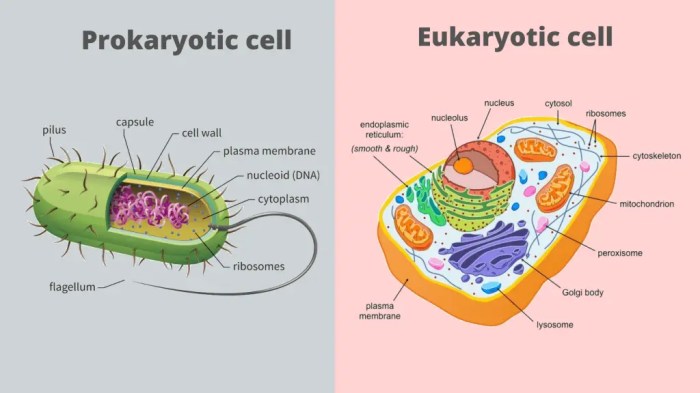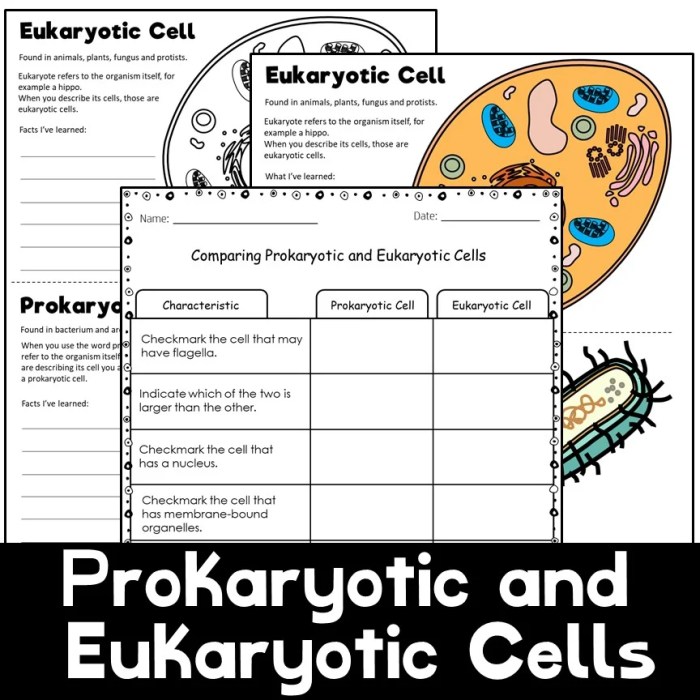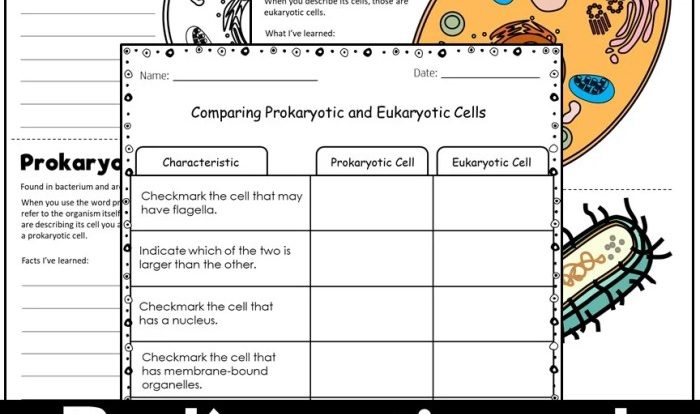Embark on a captivating journey with our worksheet on prokaryotic and eukaryotic cells, unraveling the intricacies of these fundamental units of life. Delve into their distinct structures, functions, and characteristics, gaining a deeper appreciation for the marvels of the microscopic world.
From the simplicity of prokaryotes to the complexity of eukaryotes, this worksheet provides an engaging and comprehensive exploration, empowering you with a thorough understanding of these vital building blocks of all living organisms.
Prokaryotic Cells
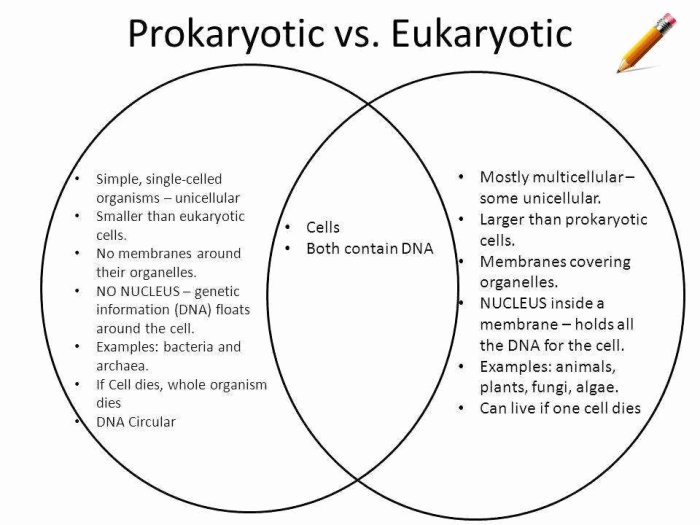
Prokaryotic cells are the simplest and oldest type of cell. They are found in bacteria and archaea. Prokaryotic cells do not have a nucleus or other membrane-bound organelles. Instead, their DNA is located in a single, circular chromosome that is found in the cytoplasm.
Prokaryotic cells also have ribosomes, which are small structures that are responsible for protein synthesis.
Key Characteristics of Prokaryotic Cells, Worksheet on prokaryotic and eukaryotic cells
- No nucleus or other membrane-bound organelles
- DNA is located in a single, circular chromosome
- Have ribosomes
- Typically smaller than eukaryotic cells
- Have a cell wall
- Have a plasma membrane
- Have a cytoplasm
Eukaryotic Cells
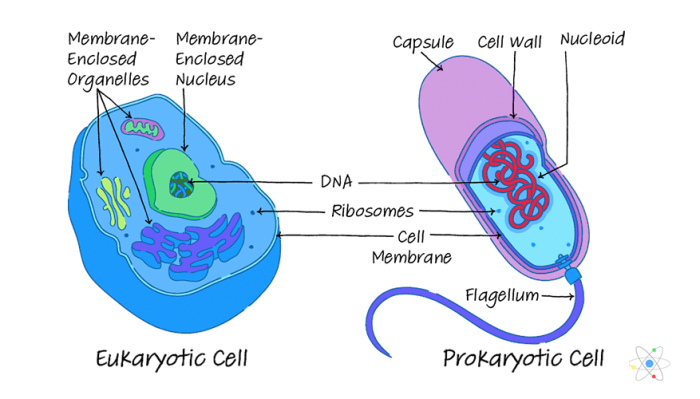
Eukaryotic cells are more complex than prokaryotic cells. They are found in all plants, animals, fungi, and protists. Eukaryotic cells have a nucleus, which is a membrane-bound organelle that contains the cell’s DNA. Eukaryotic cells also have other membrane-bound organelles, such as mitochondria, endoplasmic reticulum, and Golgi apparatus.
Key Characteristics of Eukaryotic Cells
- Have a nucleus
- Have other membrane-bound organelles, such as mitochondria, endoplasmic reticulum, and Golgi apparatus
- DNA is located in multiple, linear chromosomes
- Have ribosomes
- Typically larger than prokaryotic cells
- Have a cell wall (in plants only)
- Have a plasma membrane
- Have a cytoplasm
FAQ Corner: Worksheet On Prokaryotic And Eukaryotic Cells
What is the primary difference between prokaryotic and eukaryotic cells?
Eukaryotic cells possess a true nucleus and membrane-bound organelles, while prokaryotic cells lack these features and have a simpler cellular organization.
Which type of cell is found in more complex organisms?
Eukaryotic cells are found in multicellular organisms, such as animals, plants, and fungi, which exhibit greater complexity and specialization.
